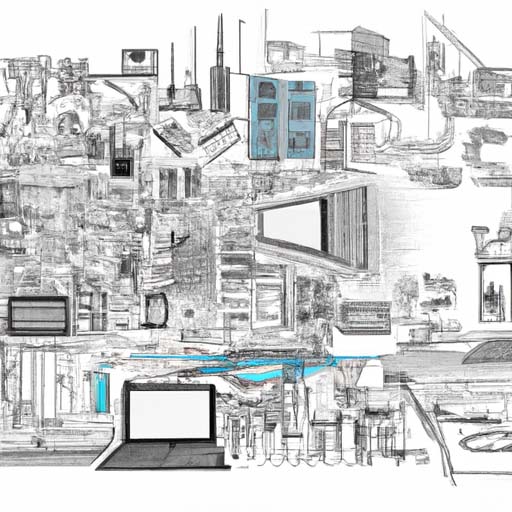Machine learning and automation are two powerful technologies that, when combined, can revolutionize industries and enhance productivity. By harnessing the power of machine learning algorithms, automation systems can become smarter and more efficient, leading to significant improvements in various processes and workflows. In this article, we will explore the perfect pairing of machine learning and automation, highlighting how machine learning fuels smarter automation systems.
Understanding Machine Learning
Machine learning is a branch of artificial intelligence that focuses on developing algorithms capable of learning and improving from data without explicit programming. It involves the creation of models and systems that can analyze and interpret vast amounts of data, extracting patterns, and making predictions or decisions based on the discovered insights.
Powered by complex algorithms and statistical techniques, machine learning enables computers to automatically learn and adapt from experience. By continuously processing and analyzing data, machines can improve their performance over time, making them increasingly accurate and efficient in their tasks.
The Power of Automation
Automation, on the other hand, involves the use of technology to perform tasks or processes with minimal human intervention. It aims to streamline repetitive and time-consuming tasks, freeing up human resources to focus on more complex and strategic activities.
Automation systems can be found in various sectors, from manufacturing and logistics to customer support and data analysis. They rely on predefined rules and instructions to execute tasks, providing consistency, speed, and accuracy. However, traditional automation systems often lack the ability to adapt and learn from new situations, leading to limitations and inefficiencies.
The Perfect Pair: Machine Learning and Automation
By integrating machine learning into automation systems, organizations can unlock a new level of efficiency and intelligence. Machine learning algorithms can analyze vast amounts of data generated by automation systems, enabling them to identify patterns, detect anomalies, and make proactive decisions.
For instance, consider an automated customer support system that uses machine learning algorithms. Instead of relying solely on predefined rules, the system can learn from historical customer interactions and adapt its responses accordingly. It can identify trends and patterns in customer behavior, personalize the support experience, and even predict potential issues before they arise.
This combination of machine learning and automation empowers organizations to develop adaptive systems that can handle dynamic environments and complex scenarios. As automation systems become smarter, they can optimize workflows, reduce errors, and deliver superior results.
Applications of Machine Learning in Automation
The potential applications of machine learning in automation are vast and diverse. Here are some notable examples:
– Predictive Maintenance: By analyzing sensor data and historical maintenance records, machine learning algorithms can predict equipment failures and recommend proactive maintenance, minimizing downtime and optimizing operational costs.
– Fraud Detection: Machine learning algorithms can detect patterns and anomalies in financial transactions, helping organizations identify fraudulent activities in real-time and take immediate action.
– Supply Chain Management: Machine learning can optimize inventory management, forecasting, and demand planning, ensuring efficient supply chain operations and reducing waste.
The Future of Smarter Automation Systems
As machine learning continues to advance, we can expect automation systems to become even more intelligent and autonomous. The combination of these technologies holds immense potential for transforming industries and driving innovation.
However, it is crucial to address challenges such as data privacy, ethical considerations, and algorithmic biases. Organizations must implement robust governance frameworks and ensure transparency and accountability in the development and deployment of machine learning-enabled automation systems.
In conclusion, machine learning and automation are indeed a perfect pair. The integration of machine learning algorithms into automation systems revolutionizes processes, enabling organizations to achieve greater efficiency, accuracy, and adaptability. By embracing this powerful combination, businesses can unlock new possibilities and stay ahead in today’s fast-paced and data-driven world.
